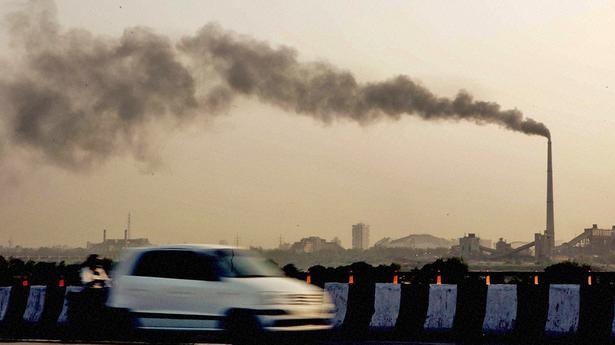
Revamped plan to check air pollution in Delhi-NCR to come into force from October 1
The Hindu
Usually the GRAP would start from October 15 when when air pollution levels in the Delhi-NCR started worsening
The revamped Graded Response Action Plan -- a set of anti-air pollution measures followed in Delhi and its vicinity according to the severity of the situation -- will come into force from October 1; 15 days before the usual date, according to the Commission for Air Quality Management (CAQM).
The revised plan, which is part of a new policy formulated by the CAQM to abate air pollution in Delhi-NCR, focuses on proactive implementation of curbs based on forecasts and restrictions can be imposed up to three days in advance.
Earlier, the authorities would implement the measures only after the PM2.5 and PM10 concentration touched a particular threshold. The new plan also entails a ban on BS IV four-wheeler diesel vehicles, barring those engaged in essential services, in Delhi and the bordering districts of NCR if the air quality index (AQI) breaches the 450 mark.
The Graded Response Action Plan (GRAP), notified by the Ministry of Environment and Forests in 2017, would come into force from October 15 when air pollution levels in the region start worsening.
The CAQM has now decided to implement it from October 1, according to a communication sent to State agencies and departments concerned.
The GRAP for the National Capital Region (NCR) has now been classified under four different stages of adverse air quality in Delhi: Stage I - 'Poor' (AQI 201-300); Stage II - 'Very Poor' (AQI 301-400); Stage III - 'Severe' (AQI 401-450); and Stage IV - 'Severe Plus' (AQI >450).
The revised GRAP recommends a ban on the use of coal and firewood, including in tandoors in hotels, restaurants, open eateries; and on diesel generator sets, except for emergent and essential services under Stage I. If the situation turns "severe" (Stage III), authorities will have to enforce a ban on construction and demolition activities in NCR, except on essential projects (like railways, metros, airports, ISBTs, national security/defence-related projects of national importance) and non-polluting activities such as plumbing, carpentry, interior decoration and electrical works.











